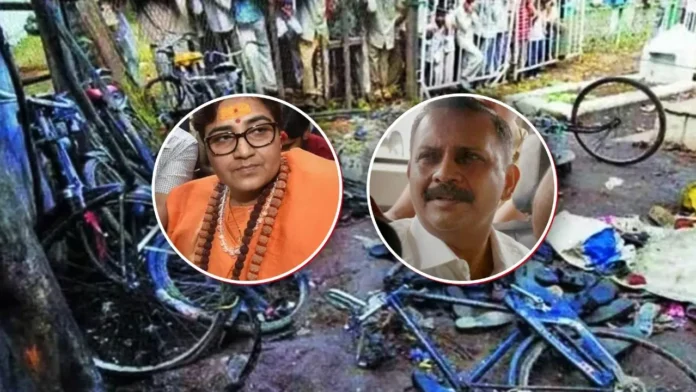NIA Court holds Col Purohit’s alleged acts not part of official duty while denying CrPC Sec 197 protection, despite acquittal in Malegaon blast case.
While acquitting Lt. Col. Purohit in the 2008 Malegaon blast case, the special NIA court ruled that his actions weren’t covered under official duties, rejecting his plea under CrPC Section 197.
In a significant observation that may influence future interpretations of protection granted to public servants, the special National Investigation Agency (NIA) court in Mumbai refused to accept Lieutenant Colonel Prasad Shrikant Purohit’s contention that his prosecution in the 2008 Malegaon blast case required prior sanction under Section 197 of the Criminal Procedure Code (CrPC).
Despite the high-profile acquittal of all seven accused in the case, the court held that the prosecution’s failure to prove guilt beyond reasonable doubt does not equate to the allegations being baseless.
Lt. Col. Purohit, who was one of the key accused in the Malegaon blast that claimed six lives and injured over a hundred people, had filed a plea stating that his prosecution without prior government sanction was illegal, as his actions were part of his military duty.
However, Special Judge A. K. Lahoti disagreed, holding that the acts attributed to Purohit were not part of his official duties as an army officer. “Though the allegations remain unproven, they are not without foundation,” the court remarked.
Why Section 197 CrPC Matters
Section 197 of the CrPC is a legal safeguard that requires prior government sanction before prosecuting public servants for acts done in discharge of their official duties. Purohit’s legal team argued that since he was a serving officer involved in intelligence operations, his conduct—allegedly infiltrating extremist organisations—was sanctioned by his role in Military Intelligence (MI).
But the court drew a clear line between state-sanctioned operations and unauthorised parallel activities. Judge Lahoti said that the alleged use of fake identity cards, covert meetings, and active participation in right-wing extremist activities could not be “cloaked as official duty.”
“Merely being in uniform or part of Military Intelligence does not grant impunity for activities not authorised or sanctioned by the chain of command,” the court stated.
Acquittal Does Not Erase Serious Allegations
In a nuanced position, the court noted that acquittal does not imply a complete absence of suspicion. “The prosecution failed to establish its case beyond reasonable doubt as required under criminal law standards. But that is not equivalent to the allegations being imaginary or vindictive,” the order read.
The court’s stance aligns with prior judgments from the Supreme Court, which have held that protection under Section 197 cannot be a blanket immunity and should only apply when a direct nexus with official duty is clearly established.
A Blow to Official Cover Arguments?
Legal experts believe this ruling may narrow the scope of protection under Section 197 for military and police personnel in future cases involving extra-official conduct. Speaking to The Legal Observer, a retired High Court judge said, “This judgment reflects a growing judicial insistence that official machinery cannot be misused for shielding individuals from accountability, even if they wear a uniform.”
Further analysis can be found under the National News section of our portal.
Military’s Role Remains Under Scrutiny
During the trial, much attention was focused on whether Lt. Col. Purohit acted as an informant to gather intelligence or whether he independently participated in the conspiracy. While the NIA and Army’s internal inquiry reports remained classified, evidence cited in court included intercepted messages, meetings, and alleged affiliations with Abhinav Bharat, a radical group.
The court carefully avoided making any findings on the Army’s internal mechanisms, focusing instead on whether the actions described could be considered part of his defined military role.
What Lies Ahead?
Lt. Col. Purohit has previously moved the Supreme Court seeking stronger protection under CrPC and military law. While the acquittal marks the end of the criminal trial, the court’s observations in this case could influence future decisions involving uniformed personnel and accountability mechanisms.
Citizens, particularly those in legal and civil society circles, are expected to follow up on whether the government or Army initiates any formal proceedings in light of this verdict.
A full video analysis can be found on our YouTube Channel.
For more insights on judicial decisions and their implications, visit our Insight section or explore our Most Popular news updates.




